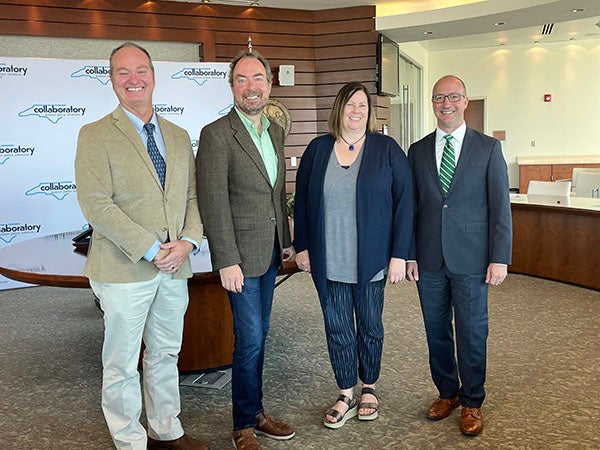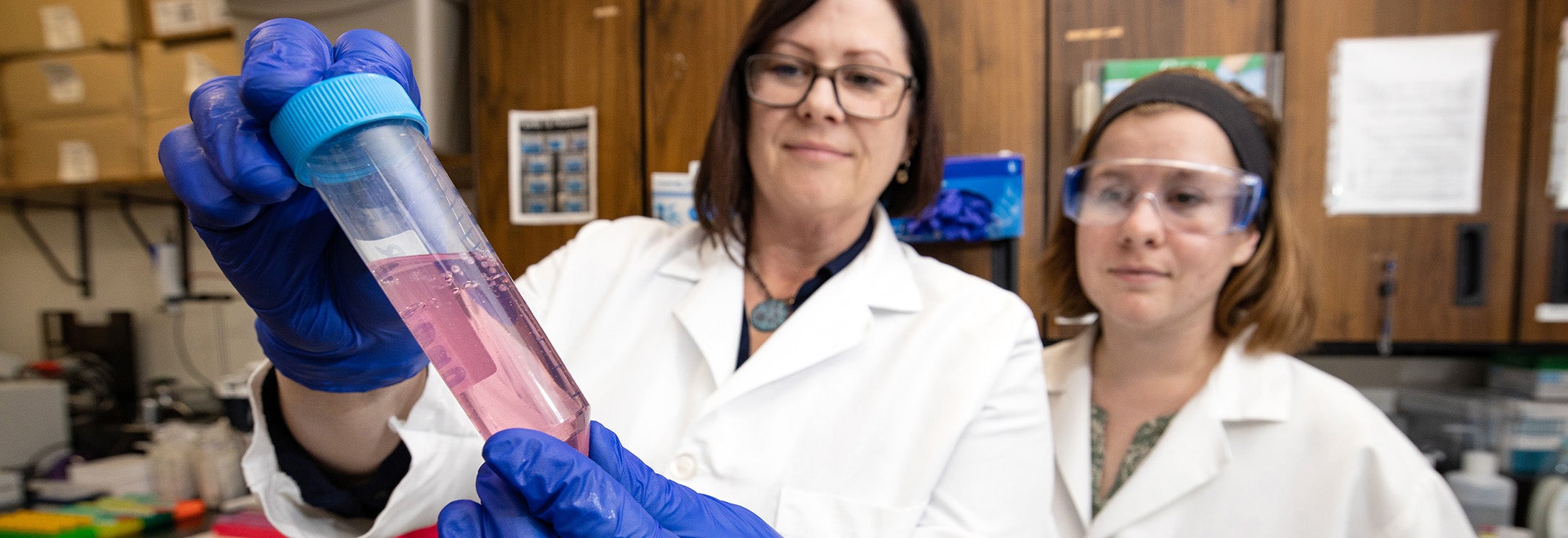RESEARCHING PFAS
ECU professor awarded state’s inaugural applied research fellowship to study PFAS
Dr. Jamie DeWitt, a professor of pharmacology and toxicology at East Carolina University’s Brody School of Medicine, was one of four researchers to be awarded an inaugural fellowship through the North Carolina Department of Environmental Quality (DEQ) and the North Carolina Policy Collaboratory to study per- and poly-fluoroalkyl substances (PFAS).
PFAS are a group of more than 12,000 human-made chemicals that are commonly found in commercial household products, industrial facilities, drinking water and food grown in PFAS-contaminated soil or processed with equipment that used PFAS.
Research compiled by the Agency for Toxic Substances and Disease Registry found that people exposed to PFAS experience a variety of health effects, including decreased antibody responses to vaccines, increased incidents of certain types of cancers, liver damage and increased risk of thyroid disease, asthma, decreased fertility, pregnancy-induced preeclampsia and hypertension.
The new applied research fellowship will provide DeWitt the opportunity to collaborate more closely with DEQ researchers by working alongside them to conduct sampling, assist with data analysis and get an up-close perspective of regulatory process for PFAS.

North Carolina’s inaugural applied research fellows for PFAS research, from left, Dr. Ralph Mead, UNC Wilmington; Dr. Detlef Knappe, N.C. State University; Dr. Jamie DeWitt, East Carolina University; and Dr. Lee Ferguson, Duke University. (Photo by Rob Spahr)
“When we think about PFAS, the questions that I receive are: ‘What are they doing to my health?’ ‘Do I need to worry about my children?’ ‘Do I have to worry about my pets?’ or ‘I have this disease, is it linked to PFAS?’” DeWitt said during a press conference in Wilmington announcing the fellowship. “My role at the DEQ will be to work with the very talented scientists at the DEQ who are addressing those very important questions about toxicity, adverse health effects and what we can understand about those adverse health effects to better protect public health.”
Steve Wall, outreach director for the collaboratory, explained that the inaugural class of fellows — DeWitt, Dr. Dr. Ralph Mead, from UNC Wilmington, Dr. Detlef Knappe, from N.C. State University and Dr. Lee Ferguson, from Duke University — are all internationally recognized PFAS experts and each of them brings a specialized skill in different aspects of PFAS research.
“Overall, the primary purpose of this fellowship program is to innovate new ways to bridge academia and government, with the ultimate goal of serving and benefiting the people of North Carolina, especially those communities impacted by PFAS,” Wall added. “We are confident this new program will develop new and sustainable ways to solve the complicated and challenging problems facing the state.”
DEQ Secretary Elizabeth Biser said that the department plans to expand the scientific work on North Carolina-specific PFAS compounds with the priorities of identifying at-risk communities, protecting drinking water and cleaning up existing contamination.
“To move forward with addressing this issue statewide, we have specific data needs and information gaps that must be filled. And what better way to do that than to partner with the leading experts on PFAS who are right here in our state?” Biser said. “This program is going to allow us to work even more closely with them on a regular basis and focus on specific areas of interest to them and to us. We’ll be able to apply their research and expertise in a practical way at their department. And they will see the impact of their work on a statewide level. We benefit. They benefit. And more importantly, the people of North Carolina benefit, as we continue to follow and advance the sciences to protect public health.”
